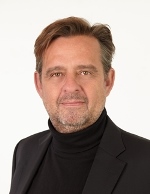Objective resource management
ADVISORY ARTICLE
By Thomas Schlereth
Munich, Germany
Rose is in a rage
People are the most important – and most expensive – asset in projects. But they are also the greatest risk … Project manager Rose has to experience this in her daily work. As an experienced project professional, she naturally knows the usual resource risks and prices them accordingly in the planning. These include, for example:
- Estimates of resources for workloads and time requirements turn out to be too optimistic.
- Resources are repeatedly diverted to other work.
- Cross-project overloads are ignored by the resources themselves or by other project managers.
- Employees repeatedly drop out – for example, due to illness or vacation.
- Project parameters such as “time” or “budget” change and affect resource requirements.
Rose can handle all that. But what makes her despair and downright angry is that her projects are constantly in competition with other departments and projects. They book employees for their own projects and don’t listen to Rose when she warns that her own projects are in danger of falling through. So she keeps buying in freelance externals to keep her projects somewhat on track. Rose decides: This can’t go on!
Intransparency meets ignorance
Projects in multi-project landscapes develop their own dynamics and follow their own laws. This includes a lack of transparency (depending on the software used): It is often completely unclear what people are working on, what work they have completed, and what their current workload is.
The reason for this is that actual capacity information is provided digitally by resources, project or team leaders late or not at all. As a result, resources are not allocated according to real needs, but according to who announces the loudest need. And this in turn results in employees who are either completely overloaded or have nothing to do.
Of course, PMOs are familiar with this situation and have learned to live with it. Unfortunately, this often leads to the fact that project managers like Rose are simply ignored when they warn – for good reasons – about miscasts in the projects, lack of resources and projects that are out of balance. An ignorance that, in the worst case, leads to negative cascading effects across the entire company.
It’s about skills
The importance of people for project management has already been described at the beginning, but actually this assessment is not precise enough: In fact, well-functioning project management is not about manpower per se, but about skills. An employee with profound knowledge of digitization is not optimally staffed on the store floor in a purely mechanically oriented project – just like the HR specialist in a supply chain project. Project managers know this, of course, but are often happy enough that project management has assigned them resources in the desired number and deployment time at all …
More…
To read entire article, click here
How to cite this article: Schlereth, T. (2023). Machines don’t know any sensitivities: Objective resource management, PM World Journal, Vol. XII, Issue IV, April. Available online at https://pmworldjournal.com/wp-content/uploads/2023/04/pmwj128-Apr2023-Schlereth-machines-dont-know-sensitities.pdf
About the Author

Thomas Schlereth
Munich, Germany
![]()
Thomas Schlereth is CEO and founder of Can Do GmbH. With Can Do, he designed a software for project and resource management in 1998 and continued to develop it further. Can Do is considered a pace setter for hybrid project management with AI support and Jira® integration. The self-developed Watermodel® algorithm enables user-friendly resource management even with high-scale project portfolios. If you would like to know more about Can Do, feel free to contact us or to visit our homepage.
Today, Thomas Schlereth is responsible for the operational management of the Can Do development, accompanies the roll-out at customers and advises project managers on best practices. If you would like to get in touch with Thomas, you are welcome to network via LinkedIn or can be contacted at thomas.schlereth@can-do.de.









